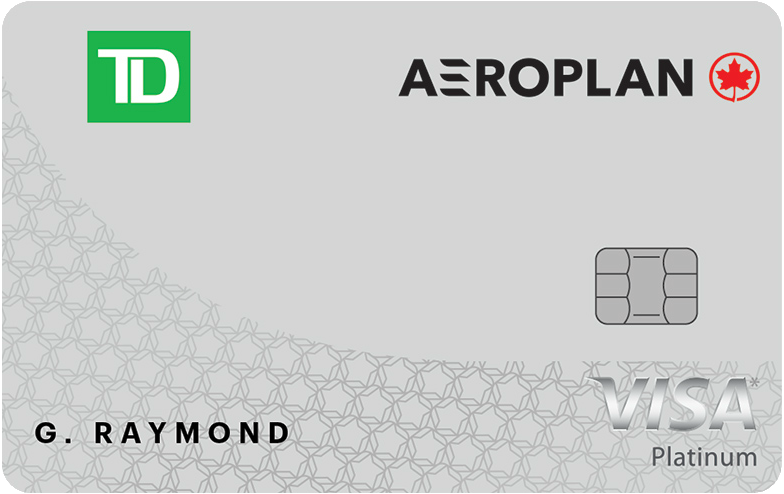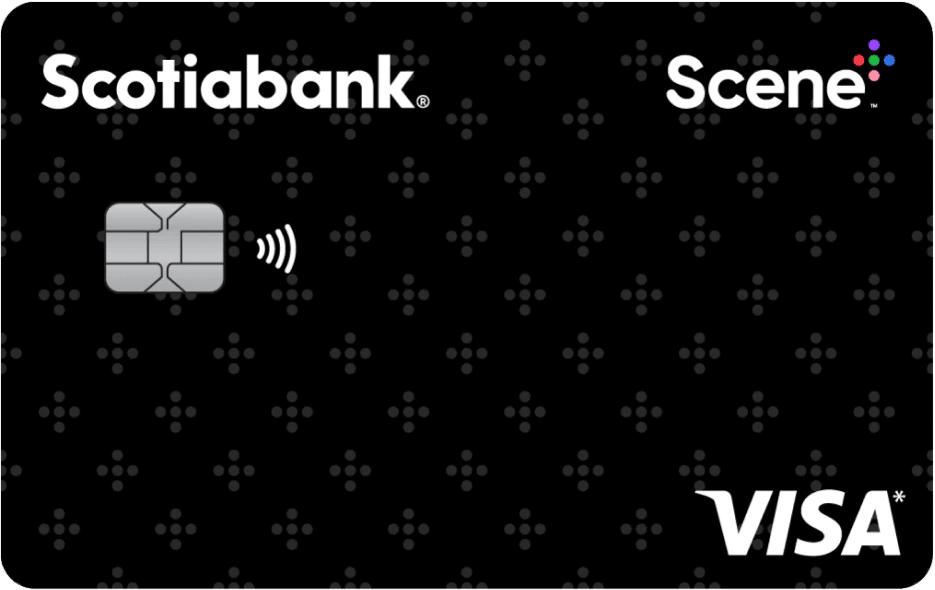Credit card rewards are a valuable resource that’s often overlooked but that can help you enjoy cash back on your purchases, free groceries, and even free (or heavily discounted) travel.
As a student, you might not have considered the value of your options in this space, particularly if you’re new to credit cards in general or if you have a fairly limited income.
However, by just funneling your expenses like groceries, transit, tuition, and rent to the right credit card, you can easily earn rewards that can help offset your costs and open up some amazing travel opportunities.
In this article, we explore credit card rewards for students and show you how you can start taking advantage of these options even if you have limited expenses or income.
In This Post
- Credit Card Rewards for Students
- Things for Students to Consider with Credit Cards
- What Card(s) Should You Choose?
- Conclusion
Credit Card Rewards for Students
Credit card rewards are a great way to earn something back on all your purchases. Even if you’re a student with a limited budget, earning a little extra back every time you buy something is certainly better than not getting anything back at all, as would be the case if you use a debit card.
As a student, you may not have a large income, but you likely still have some considerable expenses like tuition, rent, groceries, and transportation, and luckily there are ways to earn credit card rewards on all these costs.

While it’s easy to imagine using a credit card for things like groceries, transit, and books, many people don’t realize that you can also use a credit card for bigger expenses like rent and tuition by going through third-party bill payment services.
For example, by setting up an account with Chexy, you can pay your rent with a credit card, earning your credit card reward of choice for the reasonable fee of 1.75%. Now, with this set-up, you’ll want to make sure the rewards you’re earning are valued higher than the cost of the fee, but with a bit of planning this shouldn’t be a problem.
In fact, even if you don’t have a credit card, you can use Chexy with a debit card to help you build up your credit history, and then after around six months, you’ll have a stronger application when you apply for a new credit card.
Additionally, when it comes time to pay tuition, you can pay using your credit card by using a service like PaySimply or Plastiq for a fee of around 2.5–2.9%.
As a student, these services can be super useful if you’re trying to meet a minimum spending requirement to earn a welcome bonus on a credit card, but you don’t have enough expenses to meet the requirement through day-to-day spending.
Even if your expenses are limited to the bare minimum, there are still ways to earn. Getting started with credit card rewards as a student can allow for amazing travel adventures during your time off, plus it will help you build up your credit history, which will be very important when you look to make big purchases in the future.
Things for Students to Consider with Credit Cards
There are a few key things to consider when it comes to getting a credit card as a student.
Since your primary focus is your studies, there’s a reasonable chance that you don’t have a large income, and since students are often young, you may not yet have had a chance to build up much (or any) credit history.
When exploring all the different credit card options, you want to not only consider income and credit history requirements, but you also want to give some thought to which type of reward you’d like to earn as there are many to choose from.
Income
Most credit cards have a minimum income requirement that you must meet in order to be eligible to apply for the card. Generally, this is expressed with two options: you can either meet the personal minimum income requirement or the household minimum income requirement.
Personal minimum income considers only your individual yearly income, whereas household minimum income refers to the total income of all members of your household. This latter category can be particularly helpful for students that live at home since you can include your parents’ income in the total, and this may help you qualify for credit cards that you couldn’t otherwise access.
While lots of credit cards have minimum income requirements around $60,000/year and higher, there’s still many options that have income requirements around $15,000/year, and some cards don’t even have an income requirement at all.
Additionally, as a student, you may be able to bypass the income requirements for some credit cards by speaking directly to the bank or by applying through a bank’s student-focused promotion.
Credit history and score
When it comes to being approved for credit cards, especially more premium cards, your credit history and credit score can play a big part.
However, since students are often younger and sometimes from outside of the country, you may not have had a chance to build up a Canadian credit history.
Luckily, if this is the case for you, most credit card issuers offer entry-level products that can be accessed with little to no credit history. These options are great to help you build up a strong credit history, and this can pay dividends down the line with lower interest rates for major life purchases.
Type of rewards
The type of credit card rewards you choose will depend on your personal priorities. When making your initial selection, remember that you can always get another or a different credit card later as your financial and rewards preferences shift.
Credit cards offer lots of different types of rewards options, but generally speaking, you can think of them in four categories: cash back, fixed-value points, loyalty program points, and transferable points.

We’ve written a great Beginner’s Guide to Miles & Points which explains these categories in more detail, but essentially, when you’re starting out, you should think about what’s most valuable and helpful to you in terms of rewards.
Consider what will serve you best; perhaps you value straightforward cash back to save a percentage on daily purchases, or maybe you prefer flexible points that can be redeemed for groceries, restaurants, and more. If you’d like to spend your school breaks travelling, you might want to earn points that can be redeemed for flights and hotels.
The key is to give this some thought before choosing a credit card to ensure you’re earning rewards that suit you personally.
What Card(s) Should You Choose?
As we mentioned above, choosing a credit card requires that you consider your income, your credit history and score, and your personal rewards priorities.
With loads of credit cards out there, we won’t try to go over all the options, but we’ve included a few examples in this section to give you an idea of what’s available.
If you’d like to earn straightforward cash back on your purchases, you could consider a card like the Scotiabank Momentum® Visa* Card which has an annual fee of $39 (all figures in CAD) and a personal minimum income requirement of $12,000.
Alternatively, if you don’t currently have an income, you could apply for the Scotia Momentum® No-Fee Visa* Card which has no annual fee and no minimum income requirement, but it does have lower cash back earning rates than the card with fees.
If you know you’d like to earn points specifically for travel, you could consider earning Air Canada’s Aeroplan points, which are the easiest airline points to earn in Canada thanks to many co-branded credit cards and transfer partners.
In this category, you could consider cards like the CIBC Aeroplan® Visa* Card which has a personal minimum income requirement of $15,000 but doesn’t charge an annual fee. You could also take a look at the TD® Aeroplan® Visa Platinum* Card which has no minimum income requirement but charges an annual fee of $89 (though this is often waived for the first year).
Another rewards option is to earn the flexible and valuable American Express Membership Rewards points which can be transferred to a number of airline and hotel loyalty programs or redeemed for travel, merchandise, gift cards, and more.
The American Express Cobalt® Card is considered the best overall credit card in Canada and has no minimum income requirement (though you will need to have a good credit history). This card charges a monthly fee of $12.99, but typically offers the opportunity to earn bonus points during the first year, which can help offset this cost.
If you’re looking for a credit card that earns points that you can redeem for day-to-day expenses like groceries, restaurants, and entertainment, you could consider the Scotiabank® Scene+™ Visa* Card.
This card doesn’t charge an annual fee and earns the fixed-value Scene+ points, which can be redeemed for groceries at Empire Company stores like Sobeys and FreshCo, for movies at Cineplex theatres, and at restaurants like Harvey’s and East Side Mario’s (plus lots more redemption options).
The value of credit card rewards can be substantial, especially if you choose a card with a good welcome bonus and a solid earning structure.
In fact, by making the right choice, you could potentially pay for your next Spring Break or summer trip just through the points earned on the card. This is made even easier by using a service like Chexy to pay your rent with your credit card to help meet the minimum spending requirement to earn your credit card’s welcome bonus, and then keep earning throughout the year.
Also, as we mentioned earlier, if you don’t have any income, or you don’t have any credit history, it’s still possible to get a credit card and earn rewards.
All of Canada’s big five banks (CIBC, TD, BMO, Scotiabank, and RBC) offer student-specific credit card options to help get you started. These cards generally have no minimum income requirement and do not require a Canadian credit history; however, these cards do tend to come with a lower credit limit (often around $1,000).
For example, the Scotiabank® Scene+™ Visa* Card and the cash back Scotia Momentum® Visa* Card (plus its no-fee counterpart) all have student versions, and there are plenty of other similar options available.
Your best bet to get a credit card if you have no income and no credit history is to speak to your bank in person to see what they can offer you.
After you’ve held your first credit card in good standing for around six months, you’ll likely have enough credit history to pursue another more valuable rewards option.
Conclusion
As a student, regardless of the size of your expenses, there’s no reason to not have a credit card that gives you a at least little bit back on all your purchases.
Earning credit card rewards will help you enjoy perks like free groceries, cash back, and of course, free travel.
If you’d like to learn more or have questions about specific rewards or credit cards come check out our Facebook group, Prince of Travel Elites, and continue exploring all our great guides and insights here on the website.

























For me the SimplyCash Card from Amex was a great starter card. They have made the earn rate and welcome bonus considerably worse since I first got it though. The best part about it, no doubt, was the $100 cash back referral program. I racked up several of those!
A lesser known, but definitely worthwhile credit card that’s helped me as a student was Canadian Tire’s Cash Advantage card. I found that it benefitted me more than using Plastiq, since it allowed me to earn tiered cashback on tuition and student loan payments for no annual and/or transaction fees. I’ve also heard of people being able to make other types of bill payments with the card (property tax, hydro, etc.). Credit limit started high for me at $2k and later increased to $4k. Just an FYI!
A nice solid post for students. Although no surprising that the best strategy for a student is ‘not to be a student’ 😉 good luck with your study Andrew